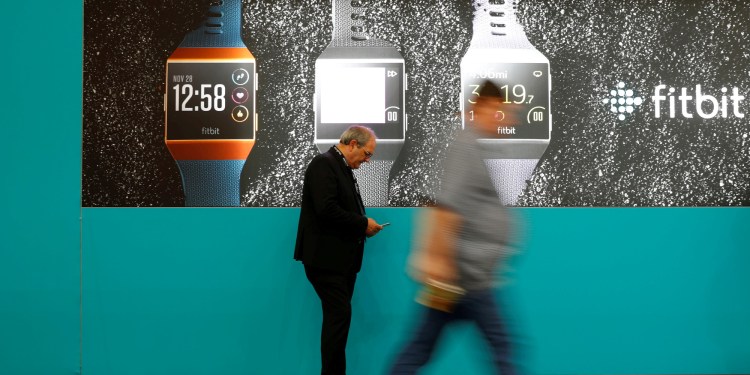(Reuters) — Wearable device maker Fitbit cut its 2019 revenue forecast on Wednesday, blaming disappointing sales of its newly launched cheapest smartwatch Versa Lite, sending its shares tumbling as much as 16% to a record low.
Fitbit in March launched Versa Lite, priced at $160, compared with the $200 the full version sells for. The watch, which can track workouts and heart rate, lacks features such as the ability to store music directly.
“While Versa Lite received good present consumer reviews, we saw that consumers were willing to pay more for a smartwatch with additional features or look for discounting versus everyday value,” Chief Executive Officer James Park said during a post earnings call with analysts.
The company had moved into the smartwatch market to cushion the hit from slowing growth of its popular colorful fitness trackers, but has faced tough competition from deeper-pocket companies such as Apple and Samsung.
June 5th: The AI Audit in NYC
Join us next week in NYC to engage with top executive leaders, delving into strategies for auditing AI models to ensure fairness, optimal performance, and ethical compliance across diverse organizations. Secure your attendance for this exclusive invite-only event.
Smartwatch revenue decreased 27% year-over-year in the second quarter.
On the call, Chief Financial Officer Ron Kisling also said the company anticipates burning cash in the first three quarters before generating cash in the fourth.
Fitbit lowered its 2019 revenue forecast to between $1.43 billion and $1.48 billion, compared with its prior expectations of $1.52 billion to $1.58 billion.
The disappointing performance of Versa Lite suggests the overall health of the business is not as strong as we had thought, DA Davidson analyst Thomas Forte said.
Versa Lite also weighed on average selling price, which fell 19% to $86 per device and missed Wall Street expectations of $91, according to research firm FactSet.
Some analysts also pointed to the weak performance of the company’s health business – widely seen as a growth driver – that connects users with doctors, hospitals, and lifestyle coaches.
Fitbit has been partnering with health insurers and making tuck-in acquisitions in the healthcare market as part of efforts to diversify its revenue stream.
Wedbush Securities analyst Alicia Reese said the 16% growth in the business during the second quarter was underwhelming and investors would want to see more if the segment is the major growth driver for Fitbit.
The business reported a 70% growth in the preceding quarter to post revenue of $30.5 million.
Fitbit estimated revenue of between $335 million and $355 million for the third quarter, below analysts’ average estimate of $399.4 million, according to IBES data from Refinitiv.
The company also forecast an adjusted loss of between 9 cents and 11 cents per share. Analysts were expecting a profit of 2 cents per share.
Excluding items, the company lost 14 cents per share in the second quarter ended June 30, smaller than estimates of 18 cents loss.
Revenue rose about 5% to $313.6 million, beating analysts’ average estimates of $312 million.
The company’s shares have fallen 15.5% this year to Wednesday’s close.

